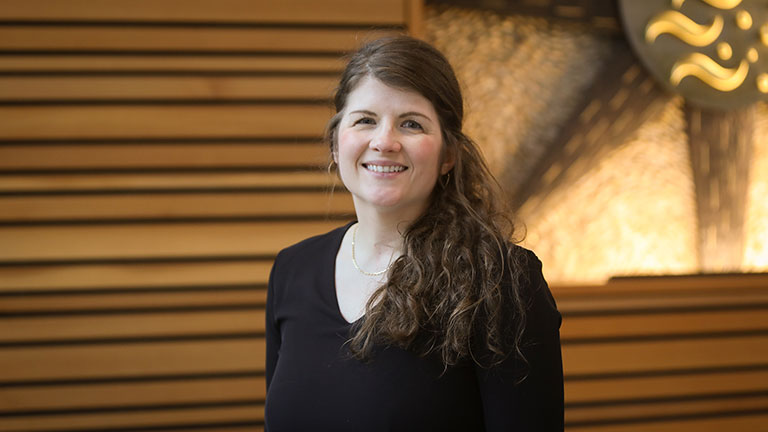Associate Librarian Rayne Vieger is head of the Digital Publishing and Pedagogy team at UO Libraries, where she and her team provide a range of support around digital publishing and affordable education, including adopting and publishing open educational resources, publishing open journals, and preserving the intellectual work of the UO community in the institutional repository, Scholars' Bank. The following piece was adapted from Vieger’s editorial for the spring 2024 issue of the student-run Oregon Undergraduate Research Journal (OURJ), for which she is the faculty advisor. Find the full PDF in Scholars' Bank.

How Libraries Support Undergraduate Research
In an unexpected way, the challenge of learning how to do undergraduate research is what led me to a career in libraries. As a first-year and first-generation college student, the imposter syndrome was strong; I lacked confidence in my writing and my voice. I was unsure if my ideas had value, and even if I finally talked myself into thinking I had something to say, I didn't know how to go about finding the "right" sources or evaluating their veracity. Luckily, I had friends who worked in the library, and early on, it became part of my life on campus.
There, I found more than just stacks of books, but kind and knowledgeable people who demystified the process of research for me and encouraged me to keep going. They helped me refine the questions I wanted to explore and helped me find and request materials with which to do that exploring. When I was ready to write up my findings, they helped me learn how to cite sources in my work and feel connected to the generations of scholars who had come before me. Those positive and supportive experiences led me to libraries; they shaped my decision to pursue a master’s degree in library and information science and ultimately to work in academic libraries, where I would be able to help demystify academic research for other students like me.
Today, I am proud to say that, as an academic librarian at the University of Oregon, I now have the privilege of supporting undergraduate students in learning how to do research. As part of my job, I get to create tutorials, modules, and learning materials to help undergraduates use library databases and repositories to find and evaluate different types of sources. Once they've started on their projects, I consult with them about topics like copyright, fair use, and licensing, and I get to work alongside the talented Editorial Board of this journal as they support other students who want to publish their research. In my role as a library faculty advisor for OURJ, I supervise the student team of editors, provide administrative support for operations, and advocate for the future of the journal. I also help editors navigate the undergraduate research and higher education landscape by providing information and helping to strengthen relationships across campus.
But it's not just me. I work with many creative and knowledgeable colleagues who do things like help students find data sets, manage their data, and learn how to create surveys for research. They help students find primary sources and use UO's unique and archival collections to create digital projects. Through collaborative projects like OURJ, our library team works with students to publish their research, and once it is out in the world, Scholar’s Bank, the UO's institutional repository, preserves it for generations to come.
Libraries are part of the infrastructure of undergraduate research, although you may not always see it. Conceptions of the librarians as "the keepers of the books" fail to appreciate the number and the quality of people it takes to support and facilitate the many kinds of research that go on at an R1 university. Through … our collections, learning spaces, services, and library personnel, I hope that more students will have the same luck I had, and that they will soon discover how their library can be part of their research journey.
Follow #MeetYourLibrarian and @UOLibraries on social media to learn more about how UO librarians serve our campus and civic communities.
—Kate Conley, communications specialist, UO Libraries
